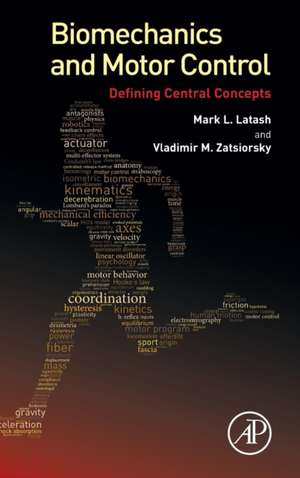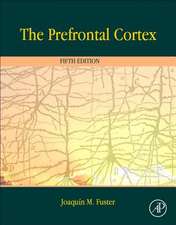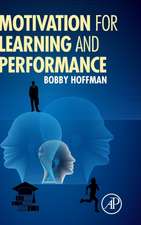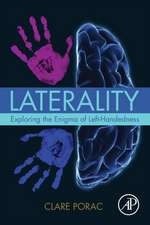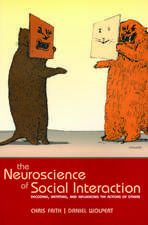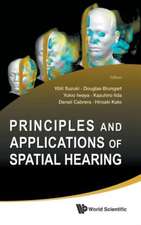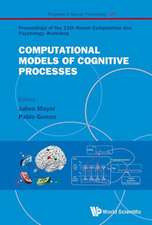Biomechanics and Motor Control: Defining Central Concepts
Autor Mark L. Latash, Vladimir Zatsiorskyen Limba Engleză Hardback – 22 oct 2015
This book clarifies the meaning of the most frequently used terms, and consists of four parts, with part one covering biomechanical concepts, including joint torques, stiffness and stiffness-like measures, viscosity, damping and impedance, and mechanical work and energy. Other sections deal with neurophysiological concepts used in motor control, such as muscle tone, reflex, pre-programmed reactions, efferent copy, and central pattern generator, and central motor control concepts, including redundancy and abundance, synergy, equilibrium-point hypothesis, and motor program, and posture and prehension from the field of motor behavior.
The book is organized to cover smaller concepts within the context of larger concepts. For example, internal models are covered in the chapter on motor programs. Major concepts are not only defined, but given context as to how research came to use the term in this manner.
- Presents a unified approach to an interdisciplinary, fragmented area
- Defines key terms for understanding
- Identifies key theories, concepts, and applications across theoretical perspectives
- Provides historical context for definitions and theory evolution
Preț: 384.55 lei
Preț vechi: 524.00 lei
-27% Nou
Puncte Express: 577
Preț estimativ în valută:
73.59€ • 79.91$ • 61.82£
73.59€ • 79.91$ • 61.82£
Carte tipărită la comandă
Livrare economică 16-30 aprilie
Preluare comenzi: 021 569.72.76
Specificații
ISBN-13: 9780128003848
ISBN-10: 0128003847
Pagini: 426
Dimensiuni: 152 x 229 x 25 mm
Greutate: 0.84 kg
Editura: ELSEVIER SCIENCE
ISBN-10: 0128003847
Pagini: 426
Dimensiuni: 152 x 229 x 25 mm
Greutate: 0.84 kg
Editura: ELSEVIER SCIENCE
Cuprins
Preface
Part One: Biomechanical Concepts
Chapter 1. Joint Torque
Chapter 2. Stiffness and Stiffness-Like Measures
Chapter 3. Velocity-Dependent Resistance
Chapter 4. Mechanical Work and Energy
Part Two: Neurophysiological Concepts
Chapter 5. Muscle tone
Chapter 6. Reflexes
Chapter 7. Preprogrammed Reactions
Chapter 8. Efferent Copy
Chapter 9. Central Pattern Generator
Part Three: Motor Control Concepts
Chapter 10. Redundancy and Abundance
Chapter 11. Motor Synergy
Chapter 12. Equilibrium-Point Hypothesis
Chapter 13. Motor Program
Part Four: Examples of Motor Behaviors
Chapter 14. Posture
Chapter 15. Grasping
Glossary
Part One: Biomechanical Concepts
Chapter 1. Joint Torque
Chapter 2. Stiffness and Stiffness-Like Measures
Chapter 3. Velocity-Dependent Resistance
Chapter 4. Mechanical Work and Energy
Part Two: Neurophysiological Concepts
Chapter 5. Muscle tone
Chapter 6. Reflexes
Chapter 7. Preprogrammed Reactions
Chapter 8. Efferent Copy
Chapter 9. Central Pattern Generator
Part Three: Motor Control Concepts
Chapter 10. Redundancy and Abundance
Chapter 11. Motor Synergy
Chapter 12. Equilibrium-Point Hypothesis
Chapter 13. Motor Program
Part Four: Examples of Motor Behaviors
Chapter 14. Posture
Chapter 15. Grasping
Glossary
